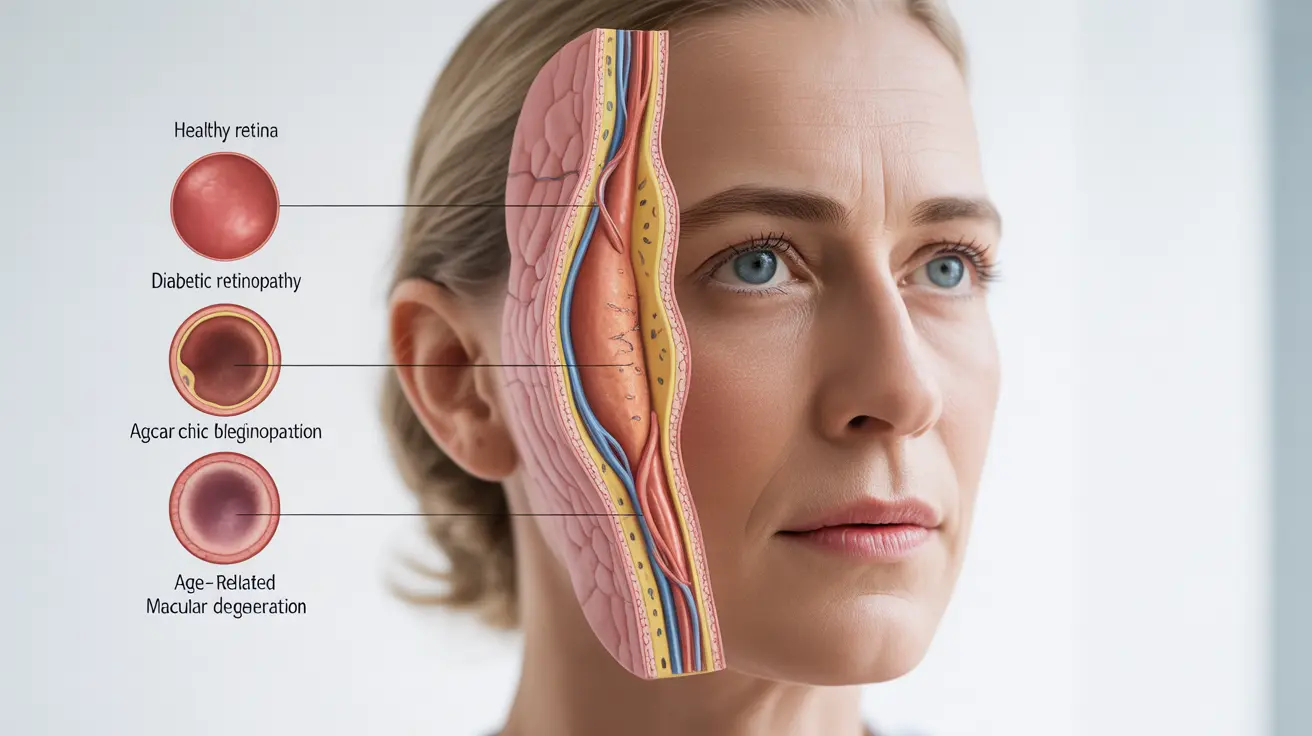The retina, a light-sensitive layer at the back of your eye, plays a crucial role in transforming light into signals that create the images we see. When retina problems develop, they can significantly impact your vision and quality of life. Understanding these conditions, their symptoms, and treatment options is essential for maintaining healthy eyesight.
This comprehensive guide will explore common retinal conditions, their warning signs, and the various treatment approaches available. We'll also discuss preventive measures and lifestyle changes that can help protect your retinal health.
Common Signs of Retinal Problems
Recognizing the early warning signs of retinal issues is crucial for timely intervention. Common symptoms include:
- Sudden appearance of floaters or flashes of light
- Blurred or distorted central vision
- Shadow or curtain-like darkness moving across your field of vision
- Difficulty seeing at night
- Gradual loss of peripheral vision
- Changes in color perception
If you experience any of these symptoms, especially sudden changes in vision, seek immediate medical attention as some retinal conditions require urgent treatment.
Major Types of Retinal Diseases
Diabetic Retinopathy
This condition affects people with diabetes when high blood sugar levels damage the blood vessels in the retina. Early detection through regular eye examinations is crucial for preventing vision loss. Treatment options include laser therapy, anti-VEGF injections, and careful blood sugar management.
Age-Related Macular Degeneration (AMD)
AMD affects the macula, the central part of the retina responsible for detailed vision. It commonly occurs in older adults and can be either dry (more common) or wet (more severe) form. Treatment options vary depending on the type but may include vitamin supplements, anti-VEGF medications, or laser therapy.
Retinal Detachment
This serious condition occurs when the retina separates from its underlying tissue. It requires immediate medical attention to prevent permanent vision loss. Risk factors include aging, severe nearsightedness, eye injury, and family history.
Diagnosis and Treatment Approaches
Eye care professionals use various diagnostic tools to assess retinal health, including:
- Dilated eye examination
- Optical coherence tomography (OCT)
- Fluorescein angiography
- Ultrasound imaging
Treatment plans are customized based on the specific condition and its severity. Options may include:
- Laser photocoagulation
- Injectable medications
- Surgery (including vitrectomy or scleral buckle)
- Cryotherapy
Prevention and Lifestyle Modifications
While some retinal conditions are hereditary or age-related, certain lifestyle changes can help maintain retinal health:
- Regular comprehensive eye examinations
- Maintaining healthy blood pressure and blood sugar levels
- Eating a balanced diet rich in antioxidants
- Wearing UV-protective sunglasses
- Quitting smoking
- Regular exercise
- Managing underlying health conditions
Frequently Asked Questions
What are the common symptoms that indicate I might have a retina problem?
Common symptoms include sudden floaters or flashes of light, blurred vision, distorted central vision, shadows in your visual field, and difficulty seeing at night. Any sudden changes in vision should prompt immediate medical attention.
How are retinal diseases like diabetic retinopathy and macular degeneration diagnosed and treated?
These conditions are diagnosed through comprehensive eye exams, including dilated eye examinations and imaging tests. Treatment options vary but may include laser therapy, anti-VEGF injections, vitamin supplements, and lifestyle modifications.
What causes retinal detachment and how urgent is its treatment?
Retinal detachment can be caused by injury, aging, severe nearsightedness, or other eye conditions. It requires immediate emergency treatment, typically within 24-72 hours, to prevent permanent vision loss. Surgery is usually necessary to reattach the retina.
Can lifestyle changes help prevent or slow down retinal diseases?
Yes, maintaining a healthy lifestyle can help protect retinal health. This includes regular eye exams, controlling blood pressure and blood sugar, eating a nutritious diet, avoiding smoking, and protecting eyes from UV radiation.
What are the treatment options available for retinal tears and retinal detachment?
Treatment options include laser photocoagulation or cryotherapy for retinal tears, and various surgical procedures for detachment, such as pneumatic retinopexy, scleral buckle surgery, or vitrectomy. The specific approach depends on the location and severity of the condition.




